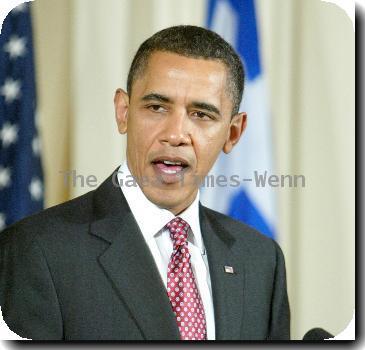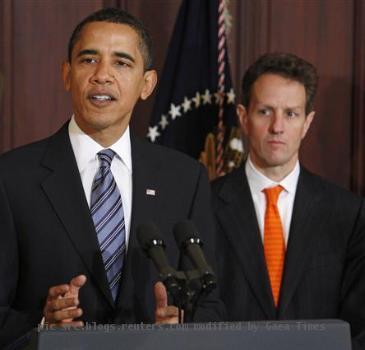Around the Gulf Coast, oil spill makes Independence Day a time for American introspection
By Peter Prengaman, APSunday, July 4, 2010
On July 4 in spill country, pondering America
LAFITTE, La. — From the country’s earliest days, when a handful of colonists became fed up with Britain and decided independence was worth dying for, Americans have been guided by fires in their bellies and a deep belief in the ability to accomplish anything.
For the United States, big dreams and the confidence they inspire have always produced big deeds — the creation of a new nation, the taming of a wild frontier, the building of an industrial giant and the ascent of a superpower.
But on the weekend when we celebrate becoming Americans, an inability to plug a vomiting oil well in the Gulf of Mexico — or launch a coherent, effective cleanup response on par with the disaster — has many people along the coastline wondering whether we have lost our way.
“From an American standpoint, this whole thing is ridiculous,” said Cliff Tucker, a 63-year-old retired police officer. Like many in this town 30 miles south of New Orleans, he lives on a bayou just a short boat ride to the ocean. “When you lose your faith in the system,” Tucker wonders, “then where do you go?”
While it would be foolish, not to mention inaccurate, to suggest that an uncontrollable gusher means Americans are no longer capable of reaching the moon or rebuilding war-ravaged Europe, the spill and its disastrous aftereffects have produced an unusual feeling of impotence.
President Barack Obama has tried to reassure Americans by taking responsibility and saying the federal government is “in charge.” But it’s difficult to know what that means, given that the Deepwater Horizon oil rig exploded on April 20 and, for its disastrous aftermath, there is no end in sight.
And for the weeks of debate about whether the president has connected on a gut level with the Gulf’s reeling residents — and the chuckles produced by his on-air comment about figuring out whose “ass to kick” — one irrefutable point remains:
Nothing the most powerful American has said or done — or the actions of anyone, for that matter — has mattered when it comes to stopping the runaway leak, or even in spearheading a nationwide response that any Gulf resident finds adequate.
“Right now, this country is about as upside down as it can get,” said Carmen Wenzel, 56. She sells postcards, umbrellas and sunglasses at a store in Florida’s touristy Pensacola Beach, where washed-up oil has become a fixture.
Her ex-husband is a former Marine who served during the Gulf War, and in most years her house is as festive on the Fourth of July as on Christmas. This year, her decorations are sitting in the box.
“I’m real emotional over this,” she said.
Glum was the order of the day on Dauphin Island, Ala., where flags and patriotic banners decorated light poles but holiday fireworks shows had been canceled. Mayor Jeff Collier said people, dispirited by the spill, were in no mood for a festive blowout. Cleanup workers have taken over parts of town, including a public beach where the parking lot is now a staging area.
Accompanied by her four grown sons and their families, Teri Bahr surveyed the odd scene on the beach and saw a picture of American decline caused by too much reliance on government and too little personal responsibility.
“I think this is a sign of how weak we are. We are weak militarily, socially and economically,” said Bahr, a retired school counselor from Overland Park, Kan. “People’s priorities are out of whack. They don’t take care of their children, they don’t take care of anything.”
Certainly, frustrated Americans are also quick to assign specific blame to oil giant BP and the federal government. Rightly or wrongly, the common narrative, which coastal residents say encompasses everything wrong with the America, goes like this:
A greedy BP cut corners when solidifying the drilling well to save a buck and never had a Plan B for a potential gusher. And the federal government, instead of mounting an overwhelming cleanup response, sunk into bureaucracy, lethargy and action-prohibiting environmental studies.
“A good plumber might work better instead of all these scientists,” said Andre Betts, 49, an oil spill response worker directing barges in southern Louisiana.
Chris Dargusch, who lives part-time in Seaside and Columbus, Ohio, said the spill was a tragedy that could motivate Americans to get the country back on track. Here’s Dargusch’s take: The citizens whom BP’s chairman famously called “the small people” need to unite — to clamp down on powerful corporations, hold government more accountable and stiffen environmental regulations.
“The small people are this country,” she said.
Despite all the frustration and negative navel-gazing, though, the American DNA is resilient and deeply stamped with the belief that a bad situation can, with the right elbow grease and ingenuity, be turned around.
At a holiday parade in Seaside, Fla., a lime-green Jeep festooned with red, white and blue streamers and balloons had a handmade sign taped to the door: “Let Freedom Ring,” it said. “The message,” its driver said as she passed by, “is don’t give up.”
Associated Press writers Jay Reeves in Dauphin Island, Ala., Jennifer Kay in Seaside, Fla., Jessica Gresko in Pensacola Beach, Fla., and Brendan Farrington in Biloxi, Miss. contributed to this report.
Tags: Accidents, Barack Obama, Coastlines And Beaches, Environmental Concerns, Florida, Holidays, Lafitte, Louisiana, North America, Occasions, Pensacola, United States





